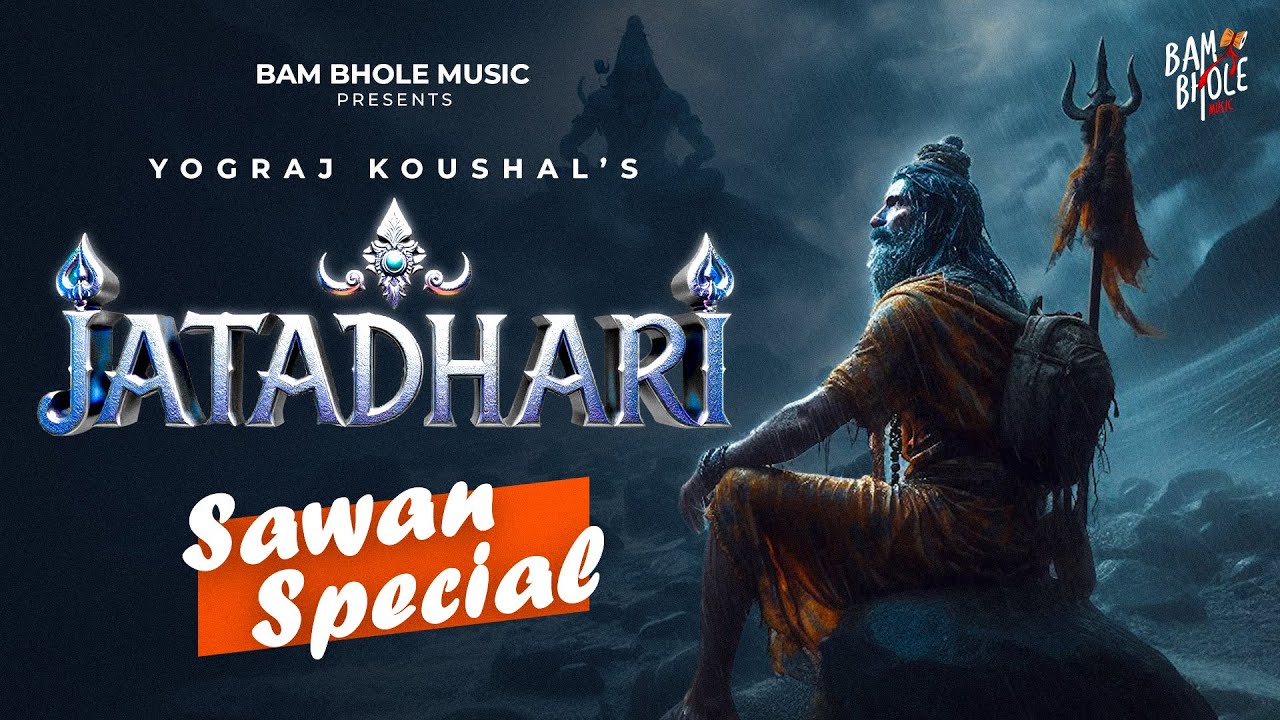Parvati Boli Shankar Se
Summary
TLDRThe provided script is a devotional song in Hindi, expressing reverence and adoration for Lord Shiva, also known as Bholenath or Bholenath Ji. The lyrics convey a deep emotional connection, with the singer seeking Lord Shiva's blessings and companionship. The song praises Lord Shiva's benevolence and power, mentioning his various attributes and the protection he offers. It also includes references to other deities like Parvati and Shambhu Nath, and alludes to mythological stories involving Lord Shiva's battles, such as his fight with Ravana. The song is filled with spiritual fervor and a plea for divine grace, encapsulating the essence of devotion and the desire for spiritual protection.
Takeaways
- 🙏 The script appears to be a devotional song or hymn, praising Lord Shiva (Bholenath) and other deities.
- 🎶 There are repeated references to music and songs, indicating a musical component to the script.
- 🌕 The script mentions 'Chandrama' and 'Ganga', which are celestial and earthly symbols of purity and divinity.
- 💖 The lyrics express a deep emotional connection and devotion to the deities, seeking their blessings and protection.
- 🔯 The mention of 'Kumbha Rashi' and astrological references suggests a belief in the influence of stars and planetary positions.
- 🌟 The script includes a call to action to 'save' or 'protect', possibly referring to the preservation of faith or religious practices.
- 🙏 The presence of 'Bholenaath' and 'Shambhu Nath' indicates a focus on Lord Shiva's benevolent and powerful aspects.
- 🌈 There is a mention of 'Triloki', which could imply a belief in the three realms or worlds in Hindu cosmology.
- 🌟 The script talks about the eternal nature of the deities and their unbreakable connection with the devotees.
- 🌍 The mention of 'Galaxies' and 'births' could be a poetic way to express the vastness of time and the cycle of life.
Q & A
What is the significance of the name 'Bholenath' mentioned in the script?
-Bholenath is a name of Lord Shiva, one of the principal deities of Hinduism, symbolizing the beneficent aspect of the Supreme God.
What does the term 'Kumbha Rashi' refer to in the script?
-Kumbha Rashi, also known as Aquarius, is a zodiac sign in Hindu astrology which is associated with the water-bearer and is considered auspicious.
What is the meaning behind the phrase 'Jale Bholenath' in the script?
-The phrase 'Jale Bholenath' is a devotional expression that translates to 'Om Bholenath, who is ablaze', indicating the fiery and powerful nature of Lord Shiva.
Why is the Ganges River mentioned in the context of 'mastak par Chandrama'?
-The Ganges River is considered sacred in Hinduism and is often associated with purity and divinity. 'Mastak par Chandrama' could symbolize the river's importance, like the moon on one's forehead, indicating reverence.
What is the significance of the word 'Avinashee' in the script?
-The term 'Avinashee' translates to 'everlasting' or 'eternal', which could be referring to the eternal love or devotion towards a deity or a spiritual concept.
What is the implication of the phrase 'Tum ho jahaan' in the script?
-The phrase 'Tum ho jahaan' implies omnipresence, suggesting that the deity is present everywhere, in every situation, and is always accessible.
What does the term 'Amrit ki barsaat' signify in the script?
-Amrit ki barsaat translates to 'the rain of nectar', which is a metaphor for divine blessings or spiritual enlightenment.
What is the importance of the name 'Shambhu Nath' in the script?
-Shambhu Nath is another name for Lord Shiva, emphasizing his benevolent and auspicious nature, often associated with the removal of obstacles.
What is the significance of the name 'Ravan' in the context of the script?
-Ravan is mentioned as an adversary of Lord Rama in Hindu mythology. In the script, it could symbolize the triumph of good over evil or the overcoming of obstacles.
What is the meaning of 'antar yami' in the script?
-Antar yami translates to 'inner self' or 'inner guide', which could be referring to the divine presence within oneself or the guiding force of a deity.
What is the significance of the term 'Tri purari' in the script?
-Tri purari is a term that could be interpreted as 'destroyer of the three cities', which is an epithet of Lord Shiva, referring to his role in the destruction of the demon cities.
Outlines

Esta sección está disponible solo para usuarios con suscripción. Por favor, mejora tu plan para acceder a esta parte.
Mejorar ahoraMindmap

Esta sección está disponible solo para usuarios con suscripción. Por favor, mejora tu plan para acceder a esta parte.
Mejorar ahoraKeywords

Esta sección está disponible solo para usuarios con suscripción. Por favor, mejora tu plan para acceder a esta parte.
Mejorar ahoraHighlights

Esta sección está disponible solo para usuarios con suscripción. Por favor, mejora tu plan para acceder a esta parte.
Mejorar ahoraTranscripts

Esta sección está disponible solo para usuarios con suscripción. Por favor, mejora tu plan para acceder a esta parte.
Mejorar ahoraVer Más Videos Relacionados

O Shankara - Ayush Talniya | Sawan Special Song | Ullumanati | Acme Muzic |

Mere Bholenath | Ayush Talniya | Saavan Special | Ullumanati | Acme muzic | Sawan Shiv Bhajan

JATADHARI (Sawan Special) - Yograj Koushal | Ullumanati

हो भोले छोड़ दो ना भंगिया हमारे लिए 🙏 गौरा मां ने क्या मांग लिया 🙏भोलेनाथ से 🙏

Namami Shamishan #namamishamishan

OVERCOME your FEAR & ANXIETY by Listening This POWERFUL HANUMAN CHALISA | Hanuman Jayanti Special
5.0 / 5 (0 votes)
